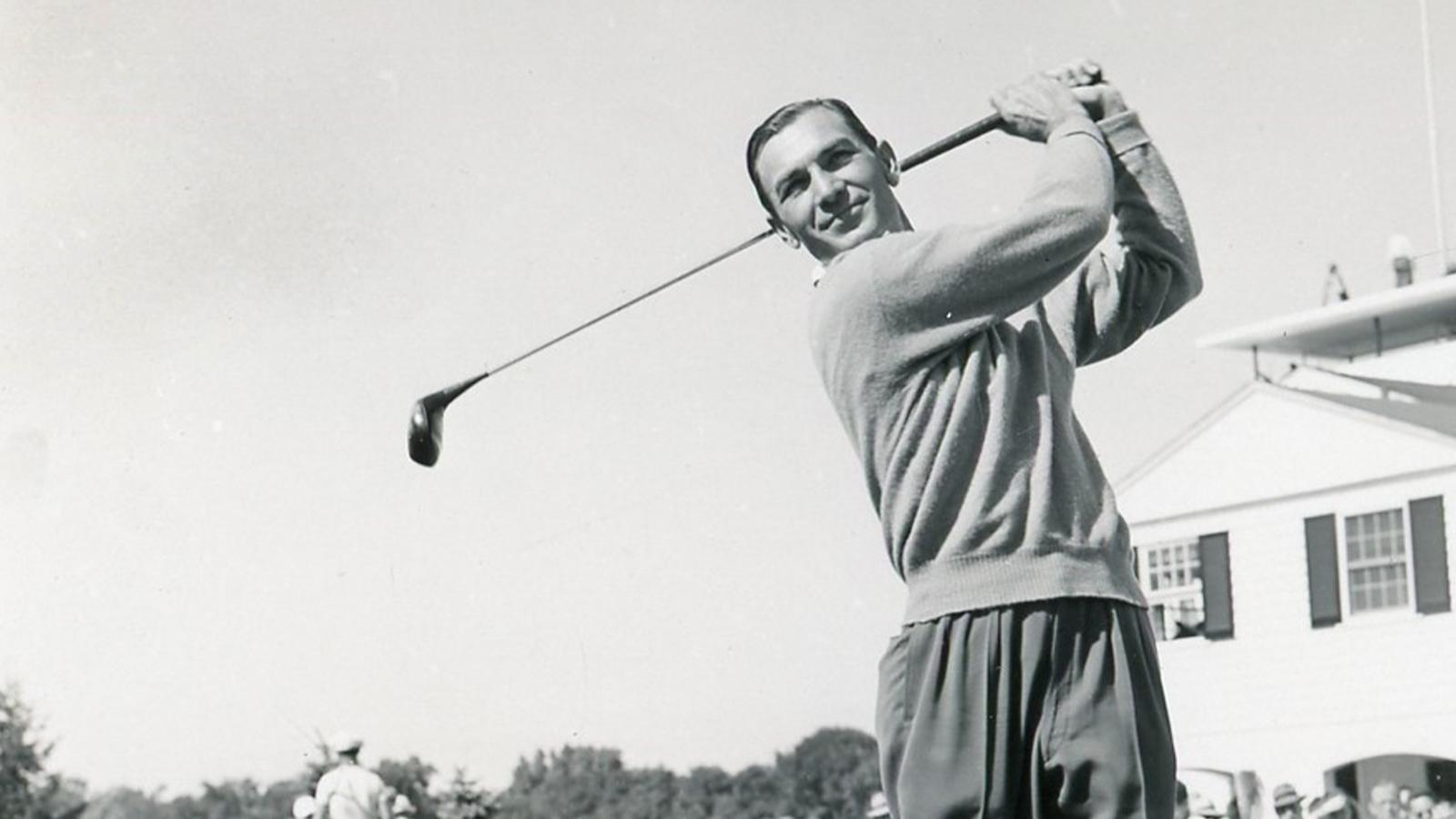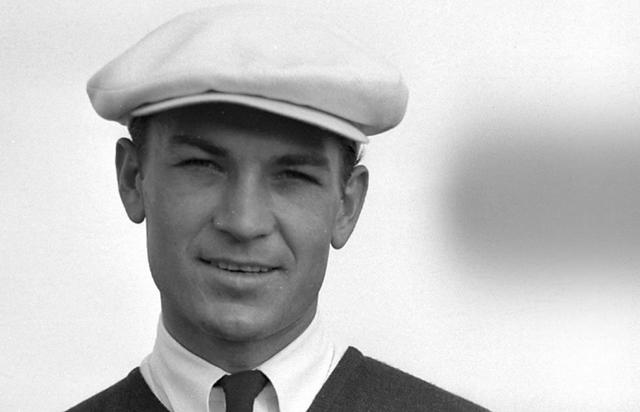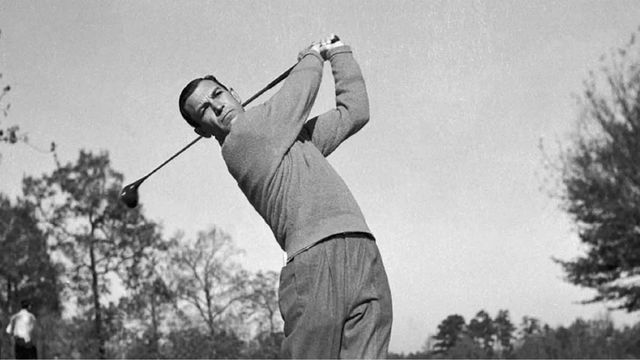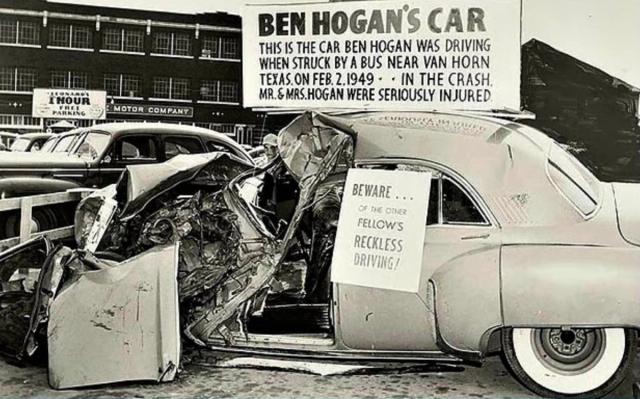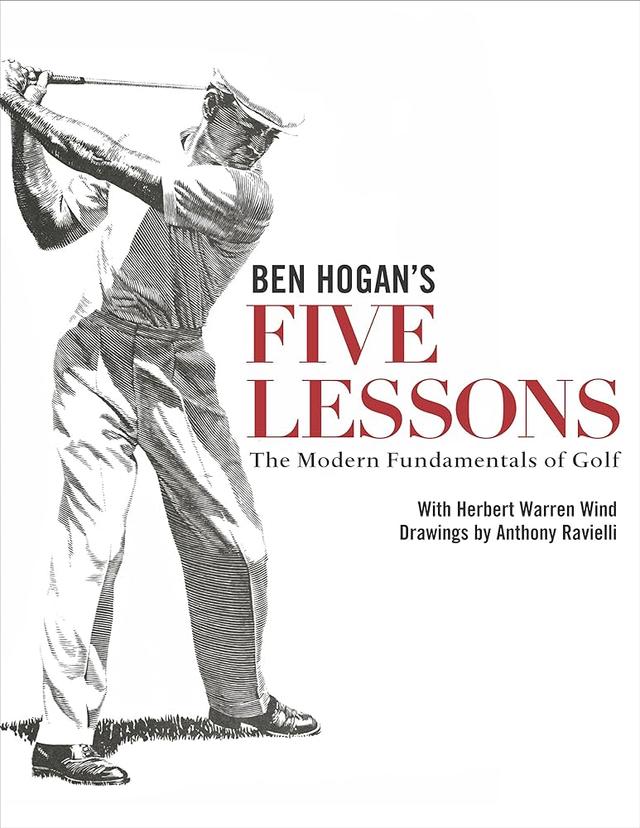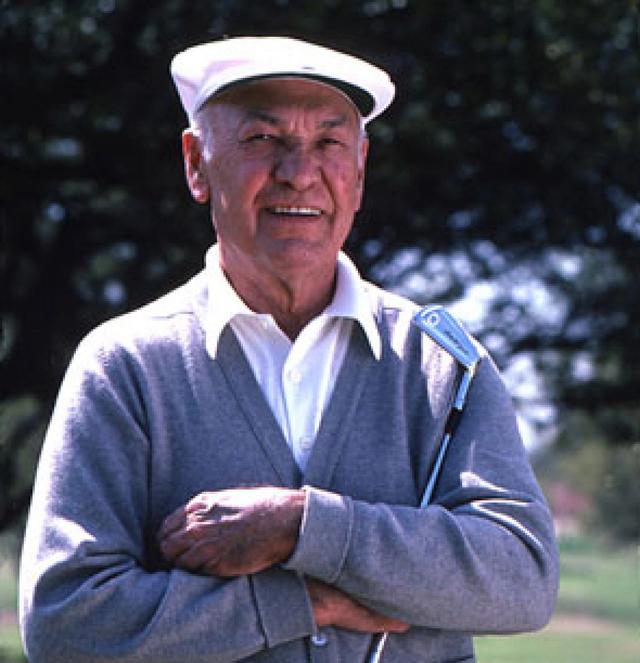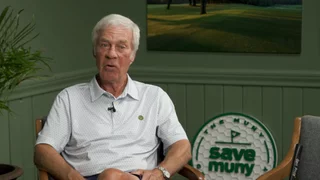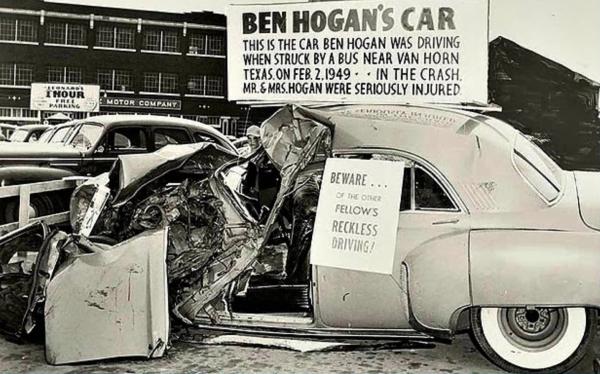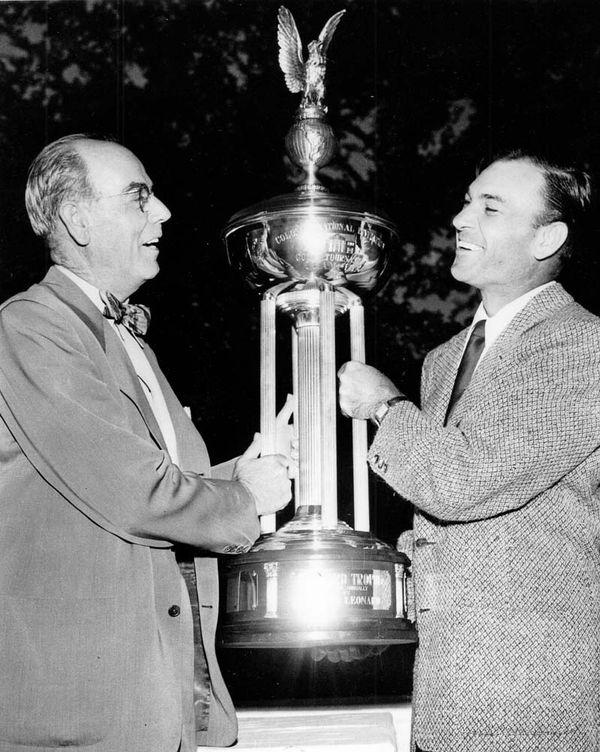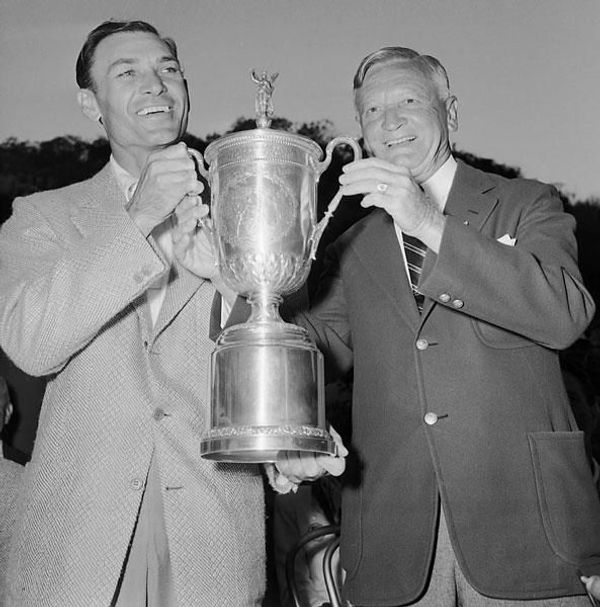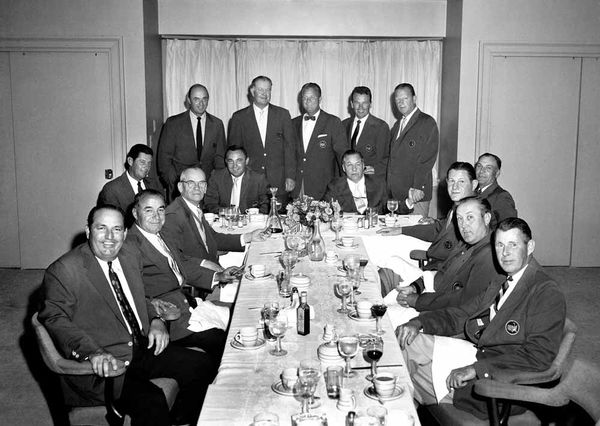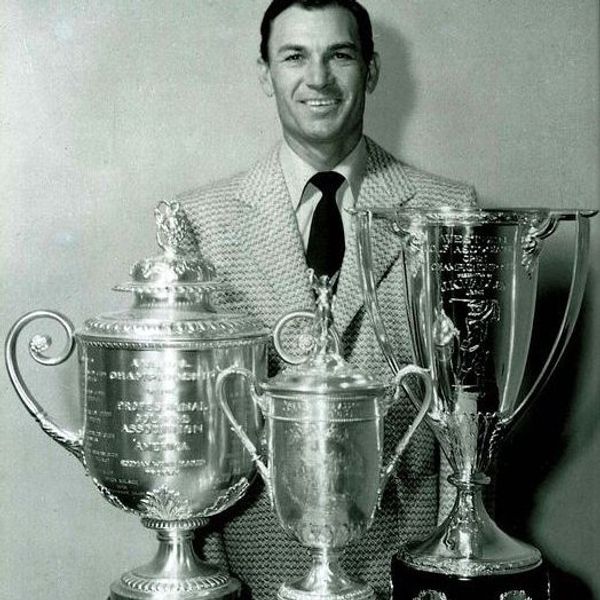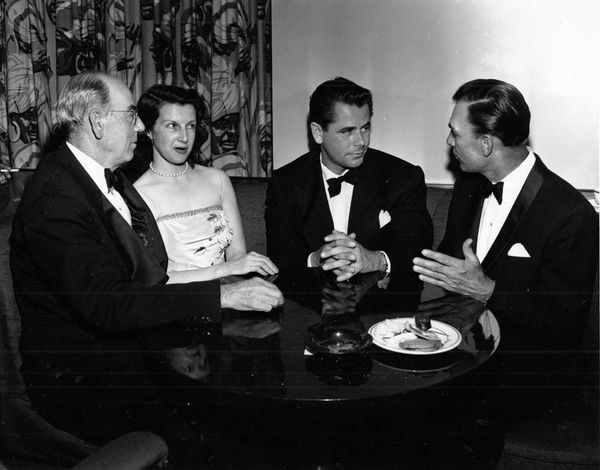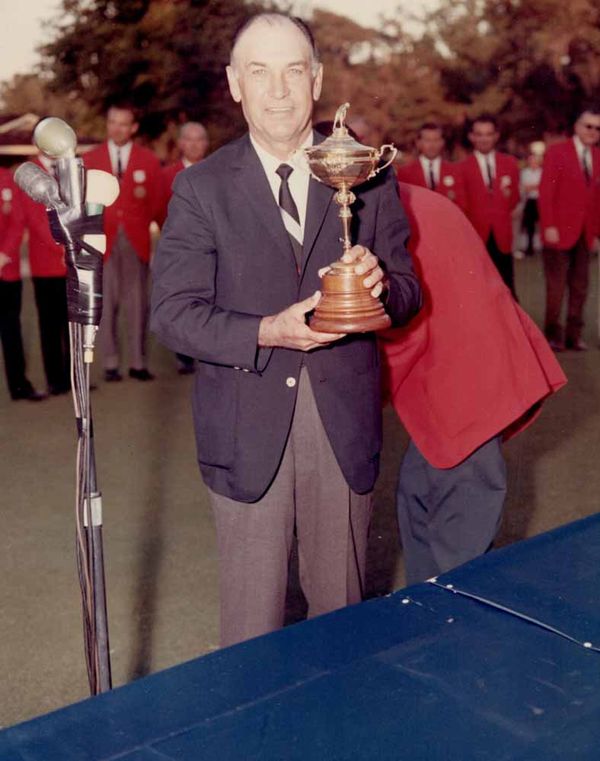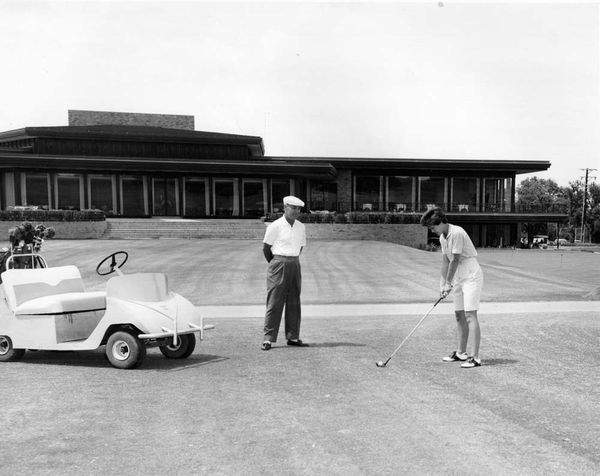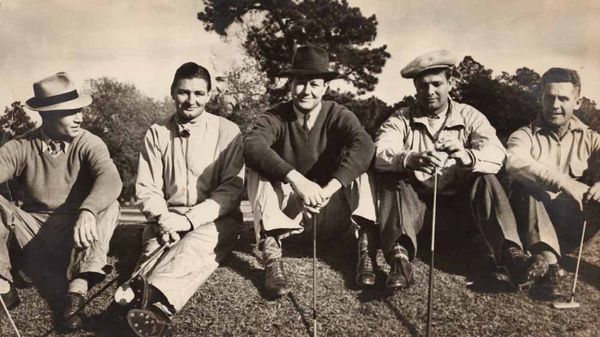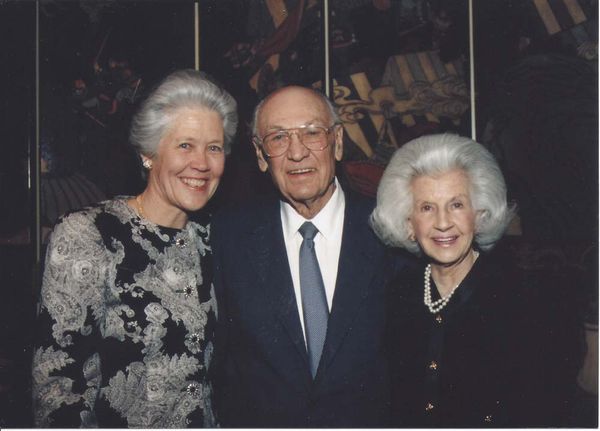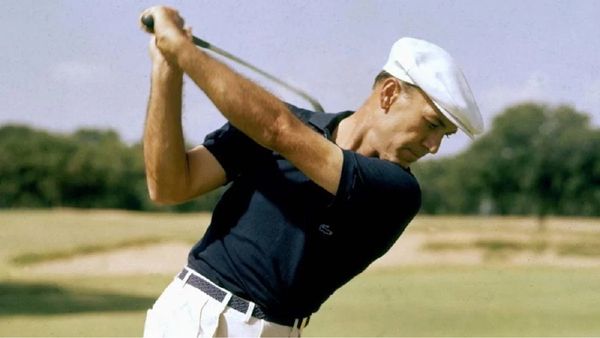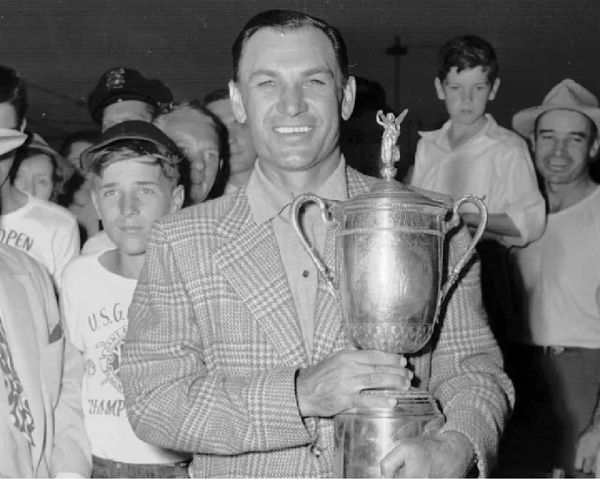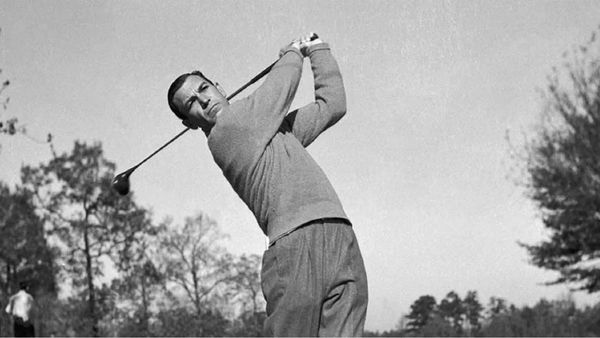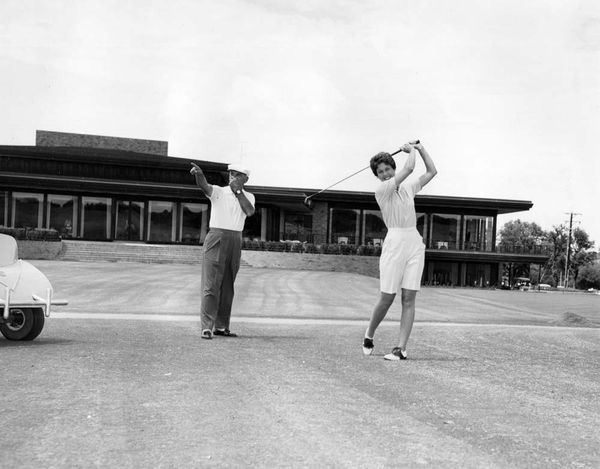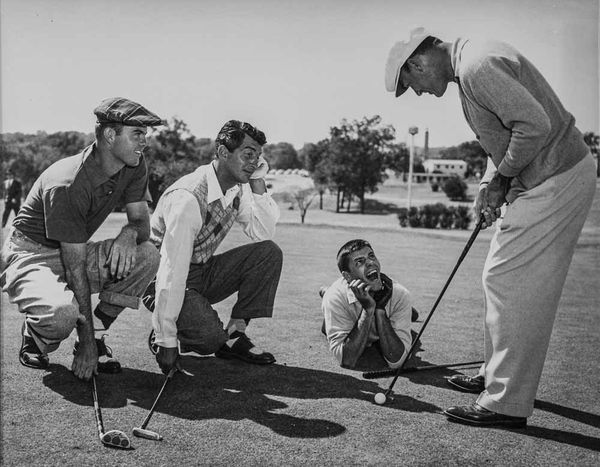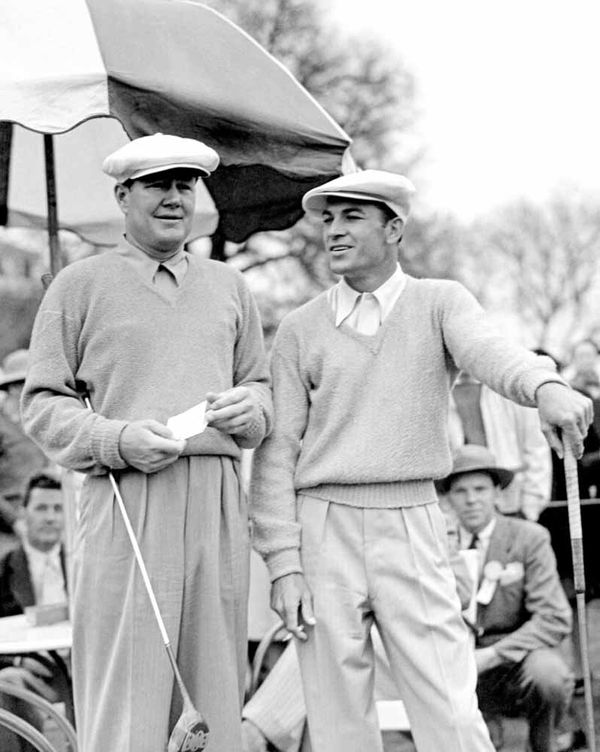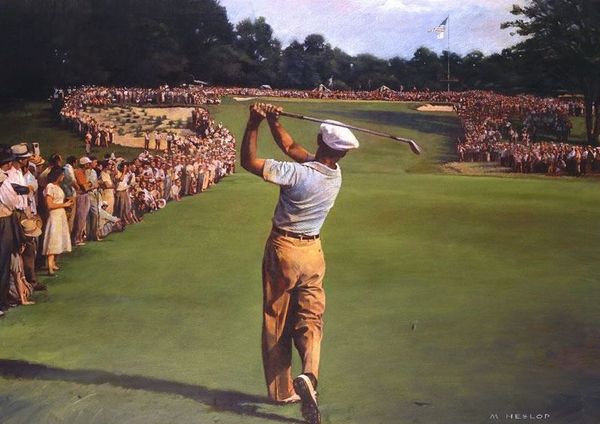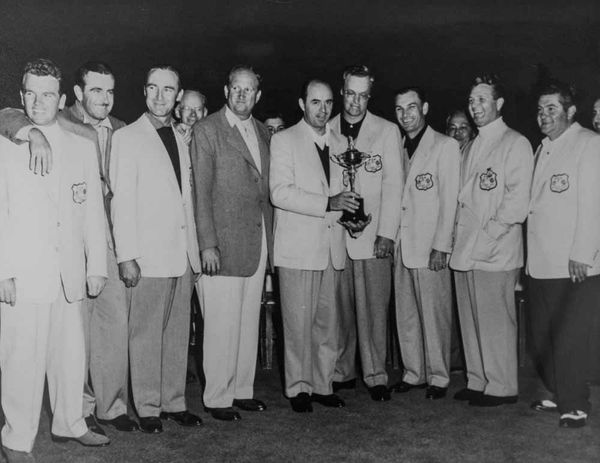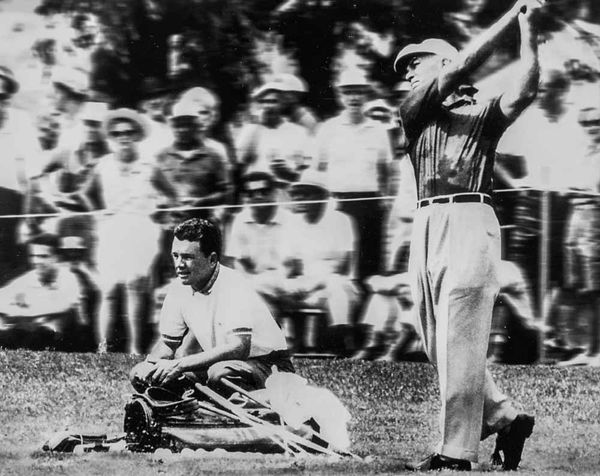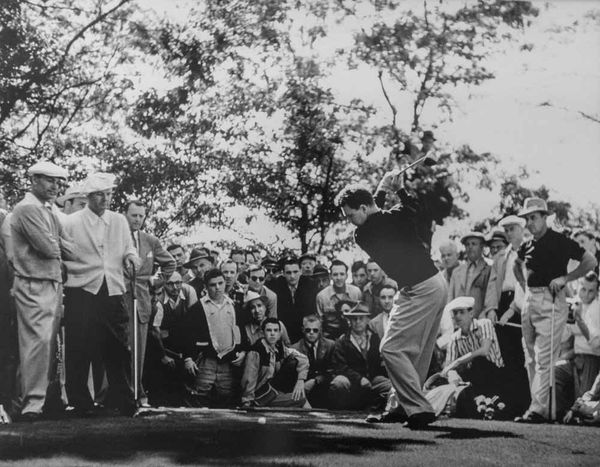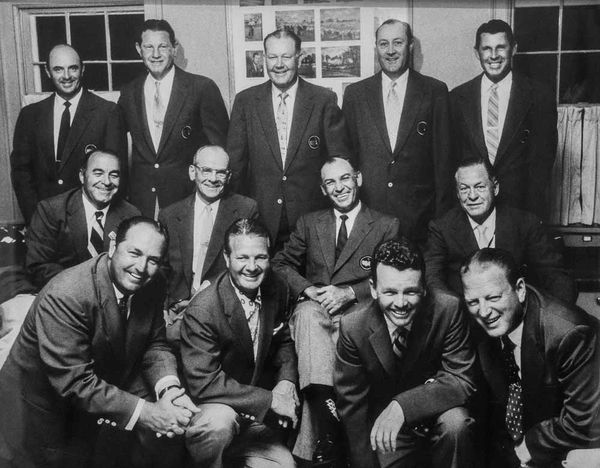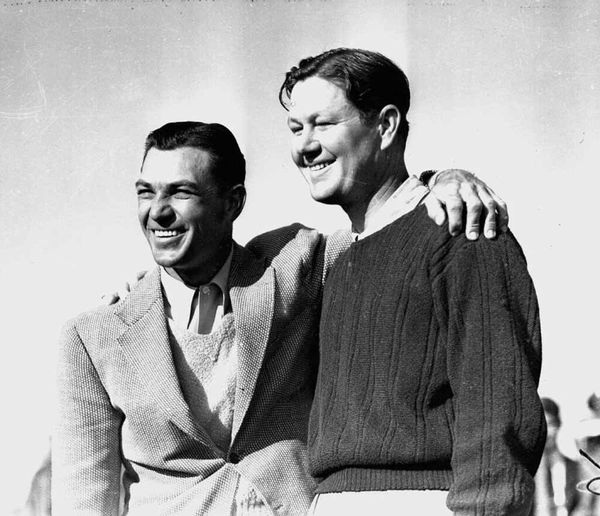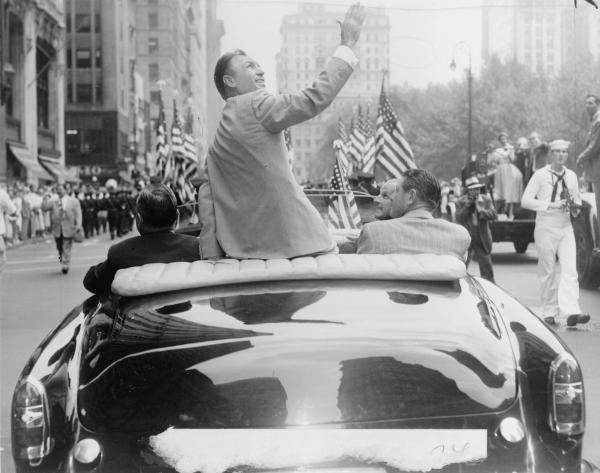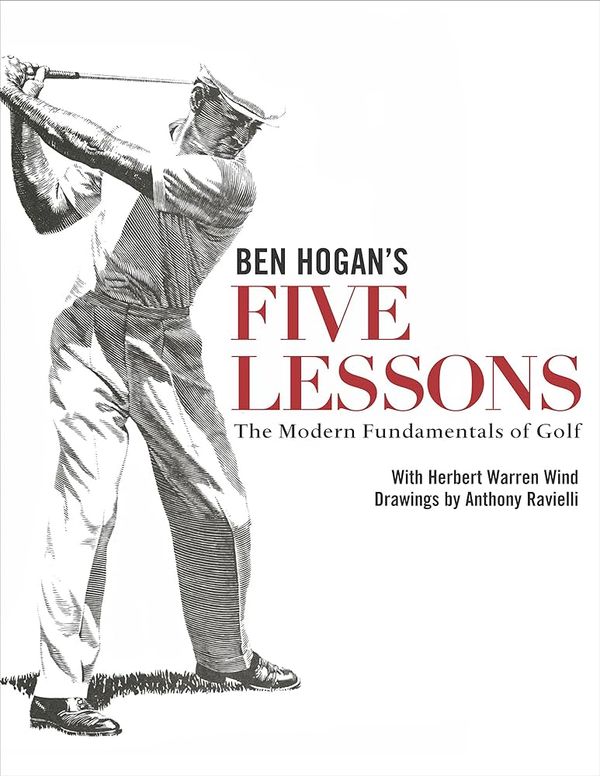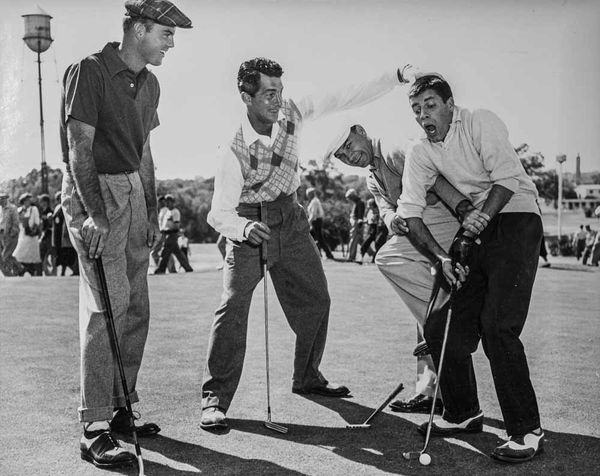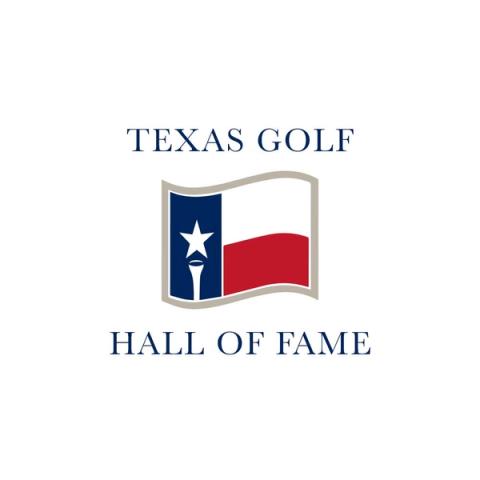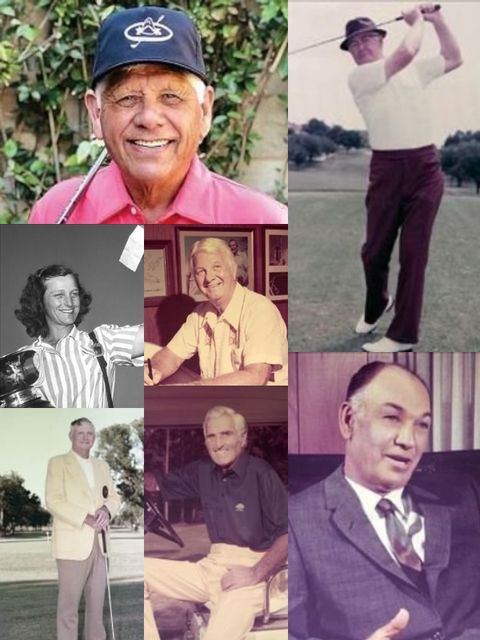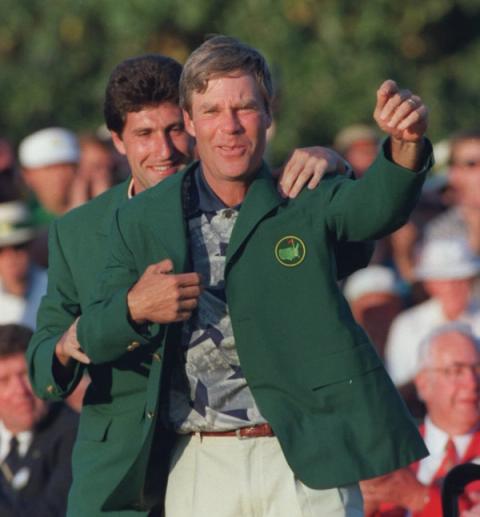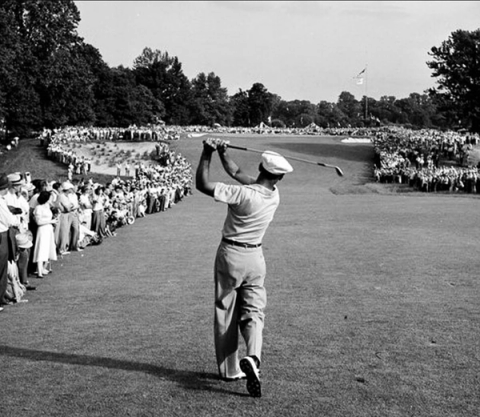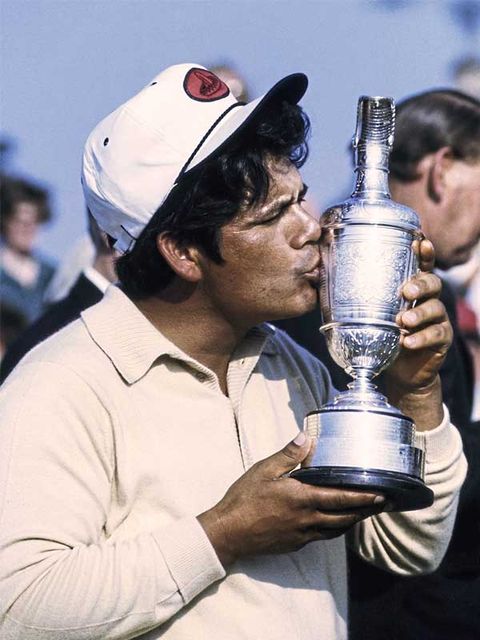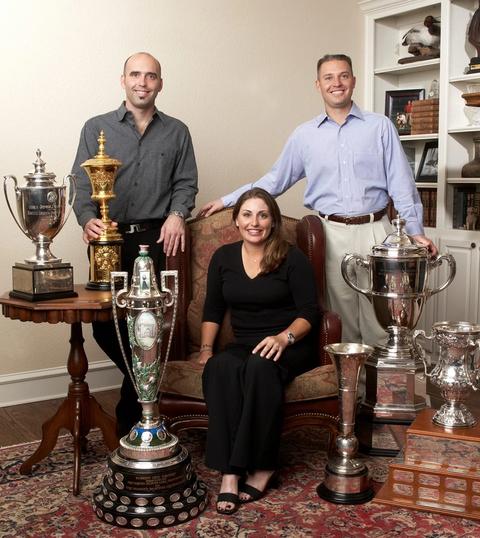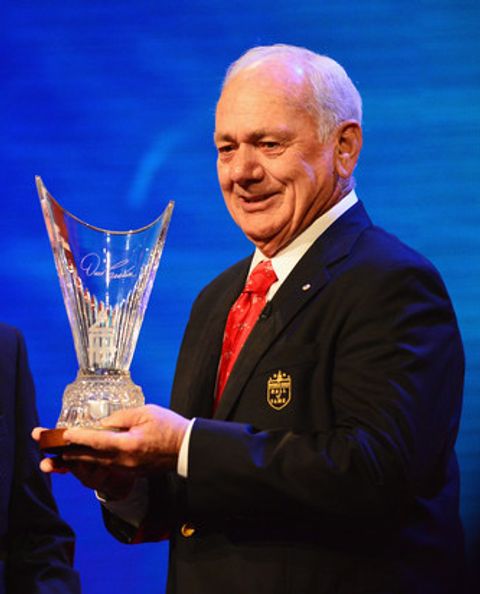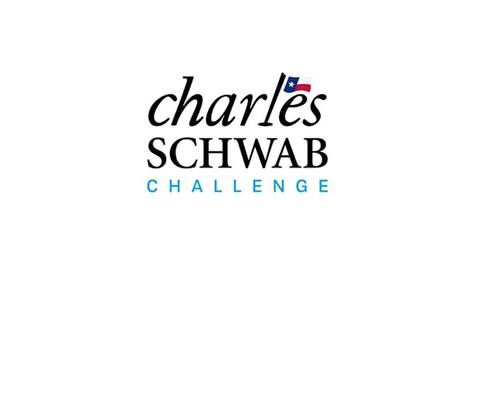The youngest of the great golfing triumvirate born in 1912 that included Byron Nelson and Sam Snead, Ben Hogan was born in Dublin on August 12th and grew up in the caddy yard. He used to have to shag balls for the older caddies because he could not match their distance with his cross-handed grip. Pro Ted Longworth saw something in Hogan that was unmatched by the others, and in 1926 Longworth began to help Hogan. The lessons began with a grip change. Hogan would go on to win 62 tournaments, nine of those major championships, including four U.S. Opens.
During Hogan's prime years of 1938 through 1959, he won 63 professional golf tournaments despite the interruption of his career by World War II and a near-fatal car accident in 1949. Hogan served in the U.S. Army Air Forces from March 1943 to June 1945; he was stationed locally at Fort Worth and became a utility pilot with the rank of lieutenant.
Hogan's watershed 1953 season, a year in which he won five of the six tournaments he entered, including three major championships, is a feat known as the Triple Crown of Golf. It still stands among the greatest single seasons in the history of professional golf. Hogan, 40, was unable to enter—and possibly win—the 1953 PGA Championship (to complete the Grand Slam) because its play (July 1–7) overlapped the play of The Open at Carnoustie (July 6–10), which he won. It was the only time that a golfer had won three major professional championships in a year until Tiger Woods won the final three majors in 2000 (and the first in 2001).
Hogan's nine career professional major championships tie him with Gary Player for fourth all-time, trailing only Jack Nicklaus (18), Tiger Woods (15) and Walter Hagen (11). He is one of only five players to have won all four majors: the Masters Tournament, The Open Championship (despite only playing once), the U.S. Open, and the PGA Championship. The other four are Nicklaus, Woods, Player, and Gene Sarazen; Hogan's first major win came at age 34.
He established his own club manufacturing company in 1953. The Ben Hogan Company was also involved with starting professional golf’s second tour, The Ben Hogan Tour, now known as The Korn Ferry Tour, a proving ground for the future PGA tour pros.
The Ben Hogan Museum, located in Hogan's childhood hometown of Dublin, Texas, pays homage to the legendary golfer—the boy, the businessman, the golfer. It highlights his early experiences and their resulting impact on his private and professional life. As the son of the local blacksmith, Hogan learned from an early age the way metal could be forged to best accomplish specific tasks. He is thought to have used that knowledge to his advantage, later in life, as he went on to design and manufacture optimum golf equipment.
When Ben Hogan passed away on July 25, 1997 a prominent golf commentator remarked, "We've lost our unicorn."


